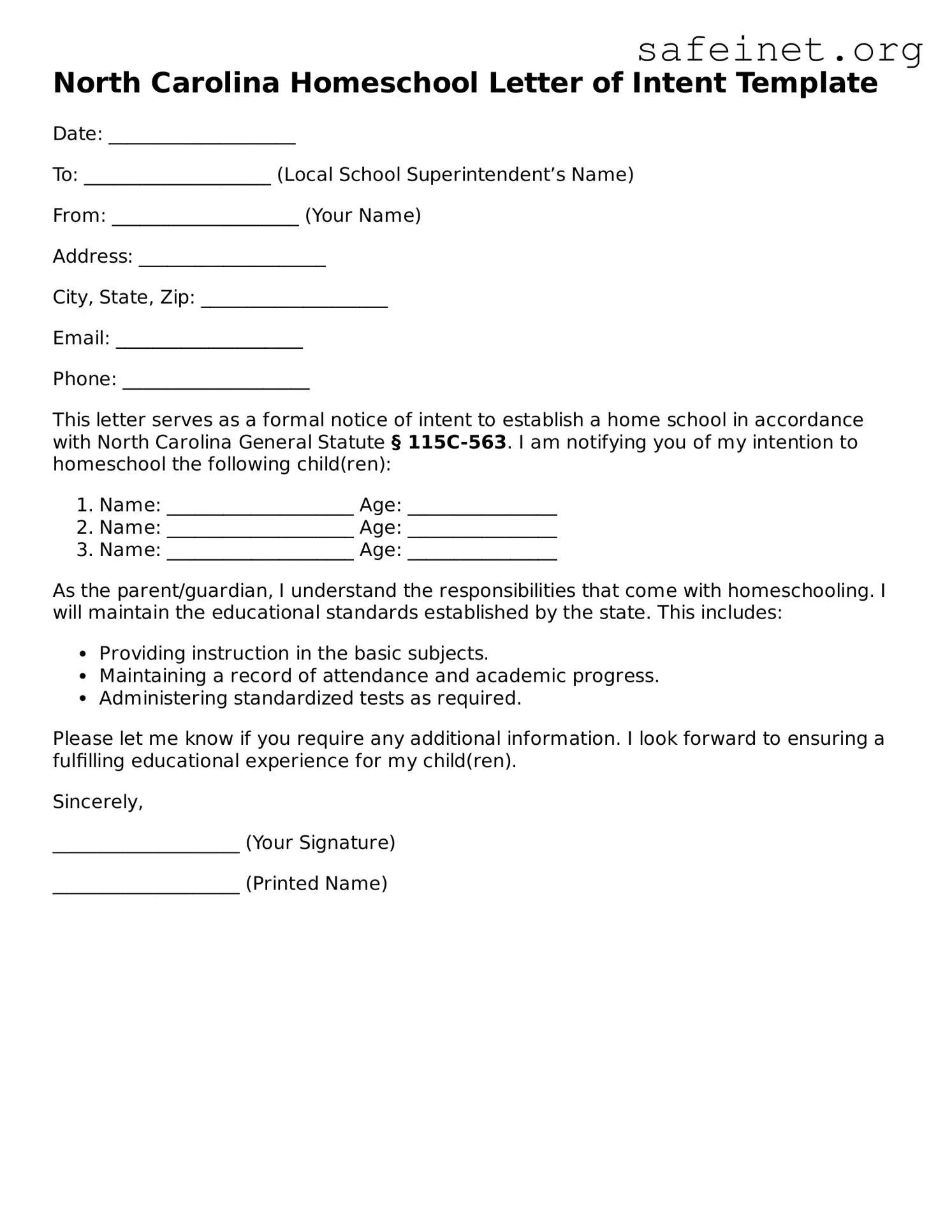What is the North Carolina Homeschool Letter of Intent form?
The North Carolina Homeschool Letter of Intent form is a document that parents or guardians must submit to formally notify the state of their decision to homeschool their child. This letter serves as a declaration of intent to provide home-based education and must be filed with the North Carolina Division of Non-Public Education (DNPE).
Who needs to submit a Letter of Intent?
Any parent or guardian who intends to homeschool a child in North Carolina must submit a Letter of Intent. This requirement applies to all children who are between the ages of 7 and 16, unless they are enrolled in a public or private school. The form must be filed within 30 days of beginning home instruction.
Where do I send the Letter of Intent?
The Letter of Intent should be mailed to the North Carolina Division of Non-Public Education. The DNPE is responsible for overseeing homeschooling regulations in the state. It is important to keep a copy of the submitted form for your records.
What information is required on the form?
The form requires basic information, including the names and addresses of the parent or guardian, the name and age of the child, and an assurance that the instruction will meet the state’s educational requirements. Additional details may include a statement indicating the intent to provide a specified number of instructional days and subjects.
Is there a deadline for submitting the Letter of Intent?
Yes, the Letter of Intent must be submitted within 30 days of starting homeschooling. If you are withdrawing a child from public school to begin homeschooling, it is advisable to file the letter promptly to ensure compliance with state regulations.
What if I am new to homeschooling? Is assistance available?
New homeschoolers can find resources and support from various homeschooling organizations and community groups in North Carolina. Many of these organizations offer workshops, online resources, and forums to connect with experienced homeschoolers who can provide guidance through the process.
Do I need to submit the form every year?
Once you submit the initial Letter of Intent, you do not need to file it annually. However, you must maintain a record of your homeschooling activities and ensure compliance with state requirements. If you decide to change your homeschooling status or enroll your child in a school, you may need to submit additional documentation.
What happens if I don’t submit a Letter of Intent?
Failing to submit a Letter of Intent can lead to legal consequences, as North Carolina law mandates that parents declare their intention to homeschool. If a parent is found to be providing home instruction without filing this form, they may face penalties, which could include fines or legal action from the state.
